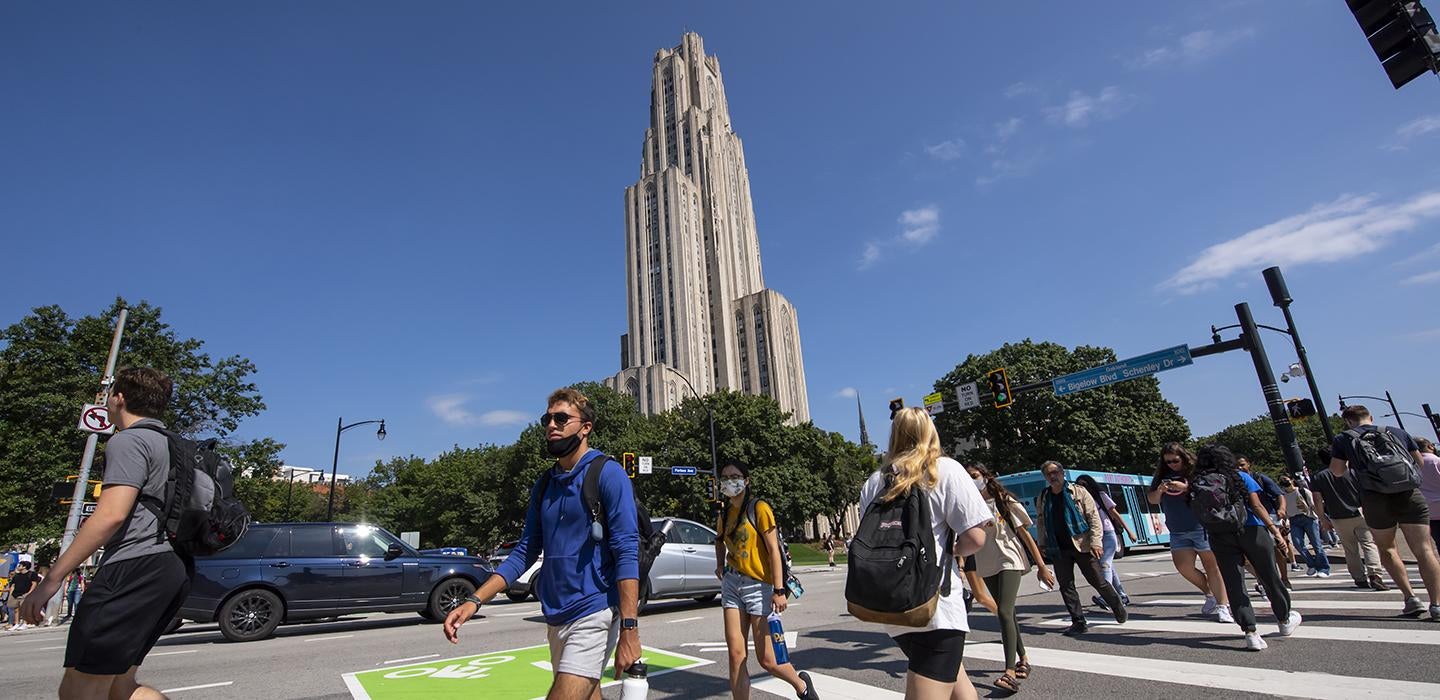
Subscribe to Pittwire Today
Get the most interesting and important stories from the University of Pittsburgh.The University of Pittsburgh is one of 15 universities to receive an innovation grant in the initial phase of Strada Education Network’s $10 million Beyond Completion Challenge.
The grants aim to help universities across the country develop new solutions to improve career and life opportunities for more students of color, first-generation students and those who struggle to afford education.
At Pitt, the $245,000 grant will support yet-to-be-deployed efforts and existing initiatives, including The Provost Academy, which prepares students for success in their first year.
“The academy focuses on developing students’ sense of belonging, fostering students’ authorship and empowerment, and removing barriers to success,” Dean of Students Carla Panzella said. “We know that students really appreciate and enjoy this program and have found great success in it.”
“The Strada grant will allow us to grow and expand the program beyond one week so we can support these students’ journey through graduation, providing them with new opportunities and experiences that will increase their retention and graduation rates, career readiness competencies, pursuit of meaningful work and career outcomes,” she said.
The Taskforce on Higher Education and Opportunity partnered with Strada for the Beyond Completion Challenge to reimagine higher education to better serve students’ needs, and the challenge supports initiatives focusing on equitable outcomes through and beyond college completion.
“This is an exciting opportunity, because integrating career advising into Pitt’s existing student support services, academic advising, curricular and cocurricular programs is an effective and creative approach to improve employment outcomes and help Pitt students find purpose in their work,” Vice Provost for Student Affairs Kenyon R. Bonner said.
“An integrated approach will also influence equitable outcomes for first-generation, low-income and other minoritized students. Pitt’s commitment to equity compels us to ensure that all students better understand who they are and to connect that knowledge with what they do post graduation. We also expect that what we learn about the impact of our efforts to support Pitt students will be scalable and could be used by other institutions similar to Pitt, so we want to pay it forward and share what we learn,” he said.
Later this year, the institutions that were awarded support in phase one, as well as other taskforce members, will be invited to compete for more than $6 million in additional funds to expand their work. The emphasis in phase two will be to reach larger numbers of students or to partner with other institutions or industries to significantly share and expand effective practices.
— Sauntee Turner


